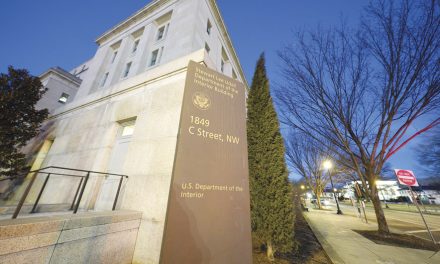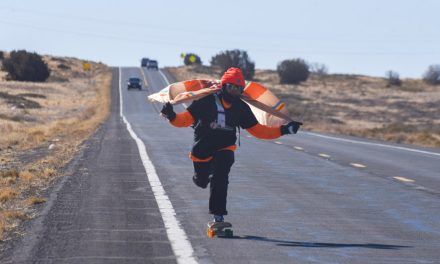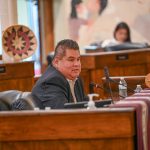
50 Years Ago: Evaluation author alleges cover-up of report critical of Rough Rock school
LOS ANGELES
A University of Chicago professor was claiming a major cover-up by federal officials who did not want the public to know what exactly was going on at the Rough Rock Demonstration School.
The school had opened six years prior to show that the Navajo people can run their own school system as well as create a curriculum steeped in Navajo language and culture.
Over the last couple of years, the school had been praised by educators as the future of Navajo education and an example of what can be done if the Navajo people had a say in how their children are taught.
Donald Erickson, an associate professor of education at the school and the person who did the 1967 evaluation, said he found that its image was far different from the reality of what was going on there.
Because the report was so negative, the Office of Economic Opportunity, which funded it, never made it public because of pressure from school officials and certain members of Congress who felt it was necessary to keep the public believing it was a total success.
In actuality, it was far from a success and comparing it with boarding schools run by the BIA showed that the federal schools got higher marks on the whole than Rough Rock did, according to Erickson.
The report, according to Erickson, found that dormitory life at Rough Rock left much to be desired. It also came to the conclusion that the all-Navajo board had little authority despite claims to the contrary.
The school board did have authority over jobs and as a result most of the people working at the school were related to a board member. Many did not have the expertise needed for their jobs.
And finally, although Rough Rock officials portrayed the school as a community school, the evaluation found the community was not involved. In fact, the study found the community more involved in the public schools than at Rough Rock.
After the report was turned in, Erickson came under attack from school officials who claimed he was looking for things that would allow him to write a negative evaluation. The same officials said this was not the first time he had evaluated a school system and found major problems that no one knew existed before he made his evaluation.
If the evaluation was accurate, it apparently did not change the way the school was operated. It was placed in a drawer and was ignored, said Erickson.
The Navajo Tribal Council was supposed to meet this week to hear allegations against former chairman Raymond Nakai but the Council’s Advisory Committee decided to postpone the special session. No reason was given for the postponement.
Nakai had been accused of persuading the tribal controller to give him $6,000 for unused vacation days although elected officials did not get vacation pay.
He was also accused of removing $10,000 worth of tribal furniture from the home the tribe provided. Nakai denied any wrongdoing and said he was eager to present his side when the matter came up for discussion.
The delay also affected another matter.
The Four Corners Commission had been prepared to go before Council to say it was willing to help pay for the building of a plant at Fort Wingate, New Mexico, to build military Jeeps.
The commission apparently was looking for economic development projects it could help fund through a federal grant it had received the previous year. Commission officials said the grant had a deadline on the use of the funds and that deadline was coming up in a few weeks.
Harry Tome, who represented Red Rock Chapter, had been pushing Council to establish a veterans’ affairs office to serve the needs of the Navajo veterans.
He estimated there were more than 6,000 Navajo veterans who had served either in World War II, the Korean War or Vietnam. He pointed out that the tribe’s chairman, Peter MacDonald, had supported creating such an office during his campaign.
He pointed out that the tribe still had more than 100 members fighting the war in Vietnam and they need the support of the tribal government.
“We keep promising our veterans we will look out for them during the election season and then we forget about them after the election,” he said.
MacDonald issued a press statement after Tome made his remarks and said he was totality in favor of the idea. He said his office was preparing a budget for the office and was prepared to present it to Council at its next meeting.
Tome also brought up something that had been forgotten by tribal leader.
Back in January of 1942, Council had passed a resolution calling for all Navajos between the ages of 18 and 25 to report to the Selective Service office in their county. They did this after federal government officials said they did not have the names of young Navajos because tribal birth records were not shared with the federal or state governments.
Tome pointed out that the Vietnam War was winding down and the federal government planned to end the draft.
But even if they do, Tome said, the 1942 resolution would still be in place requiring young Navajo men to sign up for a draft that probably no longer exists.








 Highway 264,
Highway 264, I-40, WB @ Winslow
I-40, WB @ Winslow